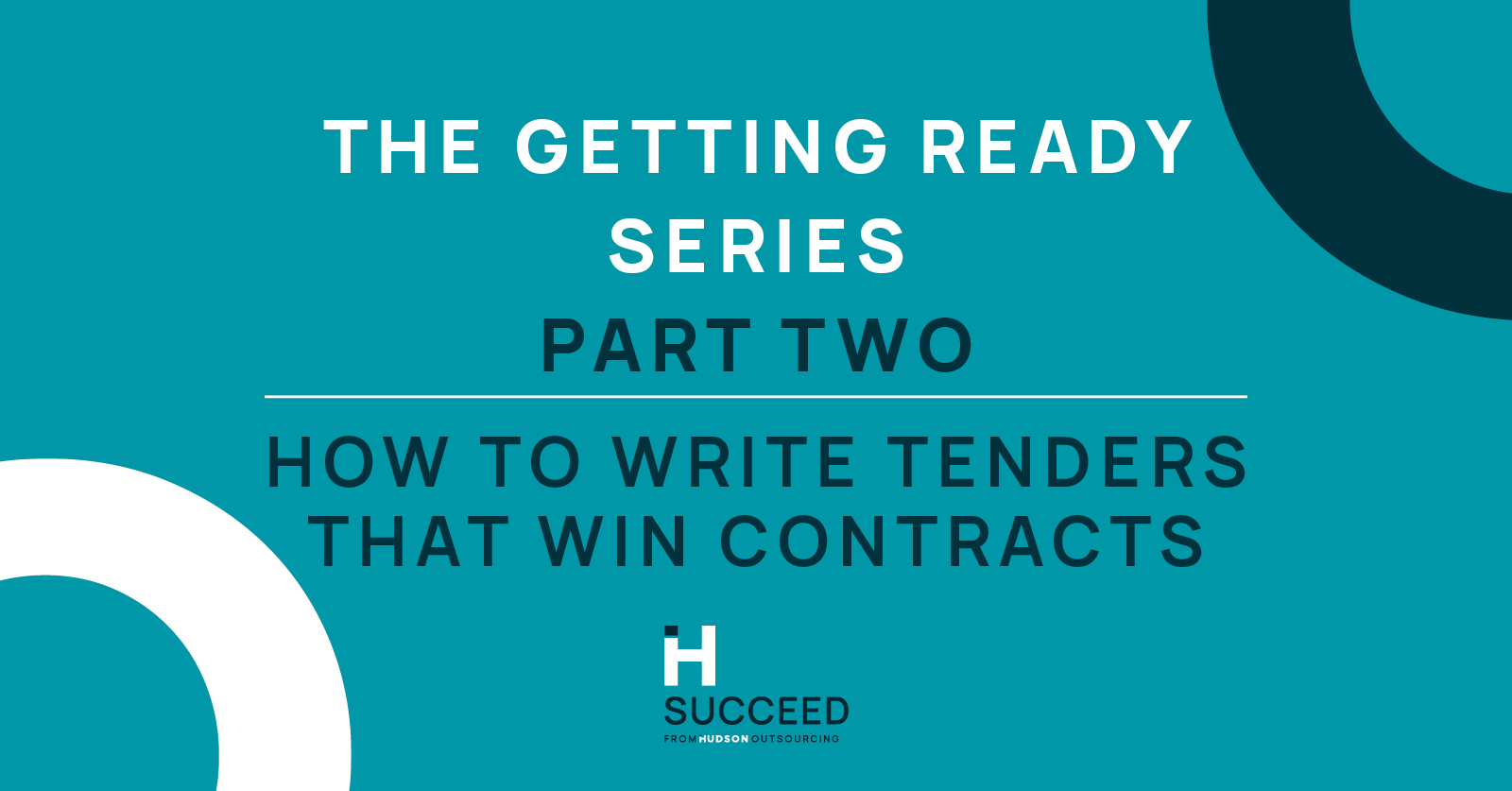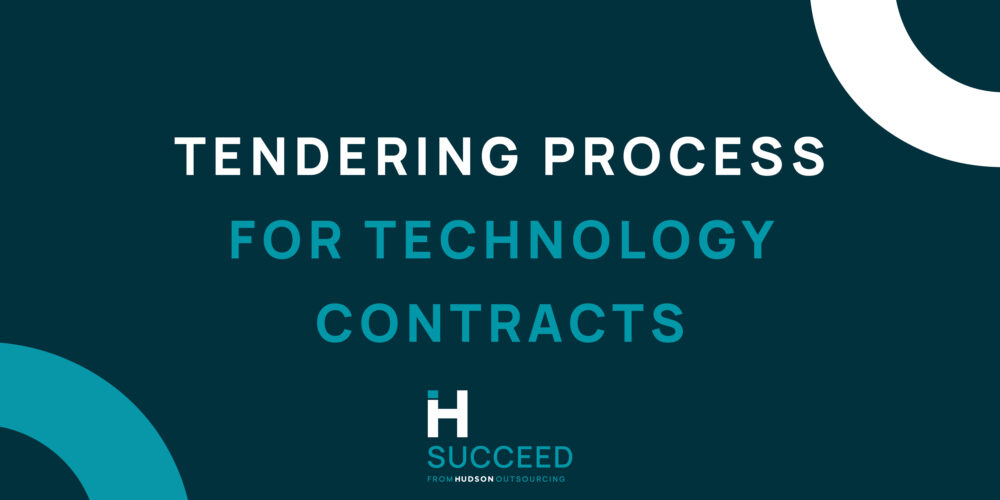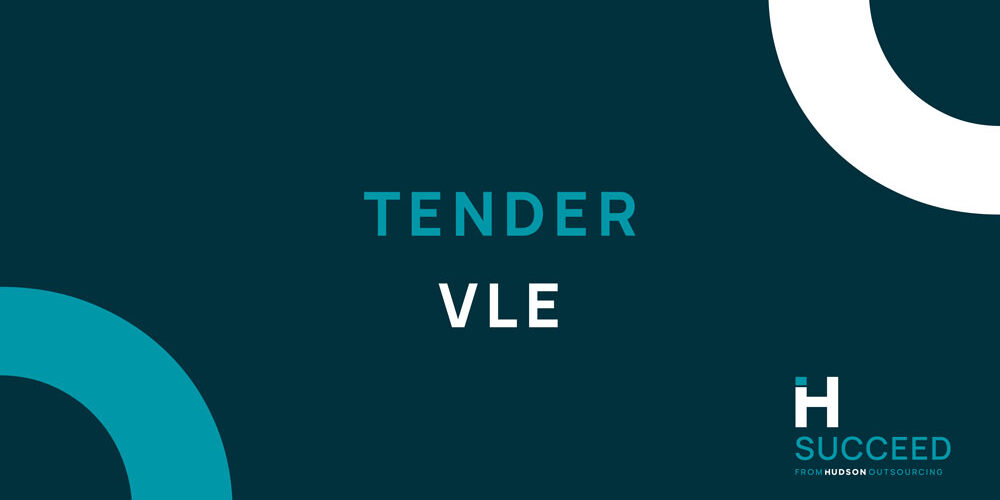Writing tenders and proposals that actually win contracts
[Last modified: July 2021]
Writing tenders and proposals is a skill that comes naturally to some but not to others. If you’re trying to educate yourself around the best way to see success, you’ll notice an abundance of theories. For those of you who are new to writing bids and proposals for your business, it can seem very daunting. It’s important not to be discouraged and give up before you’ve really begun.
If you’re struggling to make sense of the best way to approach tender writing, you’re in the right place! In this blog, we will provide tips and advice for successfully securing work when tendering for contracts.
Why listen to our advice?
Allow us to introduce ourselves.
We are Hudson Succeed, the bid writing division of our overarching Hudson Group.
Our team have almost two decades of experience helping to grow businesses around the world. In fact, the team are trusted by over 700 businesses internationally.
Not only do we have extensive experience in numerous industries and sectors, but we also hold an 87% success rate.
So, now that we have been properly introduced, let’s get to the real reason you’re here – how to win.
The public sector
Tendering is most commonly a method of securing public sector contracts. When writing tenders and bid proposals, it’s likely that the buyer will be based in the public sphere.
Public sector buyers must put contracts out to tender if they meet or exceed the current OJEU thresholds.
At the time of this blog (December 2020), the current thresholds are;
Supplies & Services (except subsidised services contracts)
Schedule 1 bodies £122,976
Others £189,330
Subsidised services contracts
All bodies £189,330
Works (including subsidised works contracts)
All bodies £4,733,252
Light Touch Regime for Services
All bodies £663,540
Small lots
Supplies and services £70,778
Works £884,720
These thresholds are in place to ensure that public money is spent wisely with a fair process in place.
Types of public sector tenders
When writing tenders and proposals in the public sector, it’s important to understand the various procedures. These tendering processes include;
This is the most commonly used process. Within an open procedure, anyone can submit a full tender.
This type of procedure requires a pre-selection phase. Anyone may participate and apply to tender, however, only selected tenders may submit the final bid.
- Competitive negotiate procedure
Similar to a restricted procedure, any supplier may ask to participate. However, only selected suppliers may submit tenders and negotiate. This procedure can be used as standard practice for defence & security, water, energy, transport and postal industries. Other entities can only use this procedure when the purchase is specific or complicated and negotiation is necessary.
This method would be used when a contracting authority seeks to establish a method of addressing their needs.
When the authority requires goods/services that are not yet available on the market, they may use an innovation partnership. Multiple companies can participate throughout this procedure.
As the name suggests, this procedure is used when the authority needs to obtain design-based ideas.
Top tip:
Writing tenders and proposals in the public sector can require jumping through a few hoops. However, in our experience, it can be a very lucrative way of growing your business and securing regular income. Consider the following before you begin;
- Do you have the experience required by the buyer and can you demonstrate this?
- Is there a minimum turnover threshold that you have to meet?
- If successful, do you have the resources required to deliver the contract? For example, does the specification require you to work in different regions?
- Can you price your services competitively? After all, public sector buyers will be most likely to award the most economically advantageous tender (MEAT).
- How can you demonstrate your social value? As of January 2021, the UK government will introduce a 10% weighting on social value when tendering. You must be able to demonstrate how your organisation goes above and beyond to positively impact society.
Our To Bid or Not to Bid blog can help you decide if a tender is right for your business.
The private sector
Buyers in the private sector are not bound by as many regulations. They don’t have to tender for work. When they do, it’s more likely to be a quotation-based exercise.
It can be more difficult to source private sector opportunities. Sometimes, it’s more about who you know. In our experience, we have found that successful private sector tendering can be heavily influenced by your relationship with the buyer.
With this in mind, we wouldn’t recommend relying on your relationship building skills alone. Accreditations and qualifications are just as important to demonstrate your capabilities.
Top tip:
If you’re focussing on the private sector, relationship building should form a large part of your business development strategy.
Flying through the pre-qualification stage
As mentioned above, public sector tendering may require a pre-qualification stage. Successful suppliers will then be invited to submit the full tender response.
The format for the pre-qualification stage will largely be determined by the industry you work in. For example, in the construction industry, this procedure usually takes the form of a PAS91. Other buyers may use a Selection Questionnaire or a PQQ.
In order to successfully pass this stage, you must be able to demonstrate that you comply with the requirements. Some buyers may require a specific turnover. If this is the case, we would recommend checking that the contract value does not exceed 50% of your turnover. This is a general rule of thumb in public sector procurement. It will often mean that you’re not eligible to bid.
Top tip:
Read the full specification. If you are confident that you meet the criteria, the PQQ stage shouldn’t be a problem.
Managing the workload and saving time in the future
Writing tenders and proposals can be time-consuming, especially if you don’t have a dedicated team working on this. However, there are ways of saving yourself time for future bids. Put smart methods in place now to help yourself later down the line.
Here are our top 4 tips to help you manage the workload;
-
Start with a bid plan
The first step when writing tenders and bid proposals should be a bid plan. This is especially useful if the specification requires a large amount of work. The bid plan will help you and your team work collaboratively and ensure that you meet the deadline. This plan can include;
- Timescales;
- Assigned roles to show who is responsible for each section, and;
- The documentation you may need from other departments.
-
Create supporting documents in advance
It is likely that you will need to attach supporting documents and appendices when writing bids. You can often pre-empt which documents you are likely to need when writing tenders and proposals. For example, healthcare businesses can assume that they will be asked to provide a health and safety policy. In the public sector, it’s safe to assume that you will be asked for at least three relevant contract examples. Think about the contracts you want to win and develop three case studies in preparation.
-
Creating a library for the future
Once you have created the documents, we would recommend filing them in a “bid library”. This will make reactive tendering a smoother process in the future. However, it’s important to thoroughly proof the documents before attaching them to each bid. You don’t want to accidentally leave in another buyer’s name or contract title for example.
-
Taking accountability for bid quality
Additionally to the above point, it’s vital that you have a thorough proofreading process in place. In your bid plan, you should assign accountability for this. When planning your process, you should consider who will be responsible and how many people will check the work. In our experience, we have seen businesses rush this process, only to be unsuccessful. Spelling, grammatical and consistency errors suggest a lack of attention to detail to the buyer. This is not a quality they are looking for.
Are you adding value?
When talking about your own business, it’s easy to go off on tangents about how amazing your organisation is. However, when writing tenders and proposals, it’s important to always keep added value in mind. When creating your tender responses, continuously ask yourself how you are going to add value to the buyer. It’s not enough to just state how you meet the requirements. You must demonstrate how your services/goods will benefit the buyer.
What about social value?
As we mentioned earlier, from January 2021, public sector organisations will place a 10% weighting on social value responses. Previously, we have seen some businesses simply state that they do, essentially, the bare minimum. In other words, they only go as far as what is required by law. From next year this won’t be enough. Buyers want to see how your organisation goes above and beyond to positively impact society.
This is good news for SMEs!
The new requirements will mean that large organisations and SMEs are evaluated by the same standards. The new system will apply tests that all bidders are capable of meeting, regardless of their size. This will help to level the playing field for small businesses.
Further support
Do you need help with writing bids or the tendering process? We understand that spending days writing tenders and proposals just isn’t feasible for some businesses. But that shouldn’t mean that you have to miss out on all the fantastic opportunities.
We provide four levels of bid writing support to ensure that we can help businesses of any size.
-
Our ad-hoc bid writing service allows you to reactively respond to tenders. Our team will write your tender responses, ask clarification questions and submit the final bid on your behalf.
-
Designed for businesses who are new to tendering, the programme ensures that you have everything in place to tender successfully.
-
If you don’t have time to conduct a thorough proofreading process, Tender Mentor can help. Our Bid Writers will assess your work, in-line with the specification. They will check for any spelling mistakes, grammar errors or inconsistencies and ensure that you have answered the specification.
-
If you’re already tendering for work but not seeing success, Tender Improvement was designed for you. During the programme, we will assess your previous submissions and supporting documents. We will then make any amendments that will increase your chances of winning.
Both our Tender Ready and Improvement packages also include a 12-month subscription to one of our tendering portals.
Our Hudson Discover division houses 11 sector-specific tendering portals. The subscription ensures that you never miss an opportunity and increases the efficiency of your tender tracking process.
Find more helpful tips and advice in our blogs. We cover topics including:







